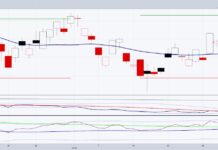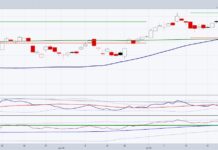Last week the Federal Reserve shocked the markets by emphasizing that a December interest rate hike was “squarely back in play”. As a result, the odds of a December interest rate hike have gone from roughly 30% before the announcement to around 60% now. If the Federal Reserve raises interest rates in December—even by 1 basis point—I believe that it will hasten a recession in the U.S. economy. More importantly, it is possible that even the threat of a December rate hike could be the catalyst that causes the stock market to retest the August lows.
The S&P 500 Index tumbled in August, bottoming out on August 24th at 1867. As I write this, the S&P 500 Index is trading at 2105. Re-testing the August lows represents a 13% drop from today’s level. Keep in mind that virtually all but one recent economic data point that I’ve seen shows that the U.S. economy continues to slow. So why would the Federal Reserve raise interest rates into a slowing economy when they have repeatedly said that any increase would be ‘data dependent’?
Perhaps it is because they are focusing on their internal forecasts as opposed to actual data. History has shown, though, that the Federal Reserve’s economic forecasts are far from accurate.
This is all about the economic cycle and growth. Economies have multi-year cycles that include periods of recovery, prosperity (or expansion), recession and depression. From an investment point of view, the best time to invest in stocks is as the economic cycle is moving from depression into recovery and thru to prosperity. And it is logical that you would not want to be heavily invested in stocks during the recession and depression phases of the economic cycle.
So recovery and expansion parts of economic cycles are good times to be invested in stocks. The recovery and expansion parts of the cycle are not times that you want to be heavily invested in bonds because interest rates typically go up during periods of recovery and expansion. And when interest rates go up, the underlying market value of bonds goes down. On the other hand, bonds (especially US Treasury bonds) do well during the recession and depression parts of the cycle.
So there is generally an inverse correlation between stocks and US Treasury bonds. When stocks are trending up, UST’s tend to trend down. The financial planning industry and conventional wisdom say that you should diversify your portfolio among stocks and bonds so they will balance each other out.
That doesn’t seem to make a lot of sense to me. If I make 4% on stocks but lose it on bonds then I have just broken even. Instead, it seems that it is more logical to not own stocks during the recession and depression parts of the cycle and to concentrate the portfolio on cash and UST’s. Then when the economic cycle starts to move back to recovery and expansion the portfolio should transition over time out of USTs and into stocks. This isn’t always easy to do because there can be confusion over which part of the economic cycle we are in.
I believe that we are currently in the late stages of the expansion cycle that started in 2009. We are seeing earnings and US GDP decline. Corporate earnings reports (before being massaged for public consumption) have retreated for four quarters. As of a few days ago, with 341 of the 500 S&P 500 companies having reported their Q3 results, average company earnings are down -5.5% and profits have declined -3.9%. We are also seeing US GDP decline as well with the preliminary Q3 GDP only being 1.5%.
So if it is true that we are in the latter stages of this economic expansion cycle and the Federal Reserve decides to raise interest rates in December, I believe it will increase the deceleration in growth (doesn’t that sound like Fed speak?) In other words, it will be slamming on the brakes when the economy has already been slowing. That scenario would be bad for stocks but positive for US treasury bonds.
The transition between the phases of the economic cycles is often difficult to navigate. It can be a time when volatility increases substantially. And these transitions often play out over months or quarters. Thanks for reading.
Further reading from Jeff: Is It Time To Reduce Your Stock Market Exposure?
Twitter: @JeffVoudrie
Author holds various positions in US treasury bonds at the time of publication. Any opinions expressed herein are solely those of the author, and do not in any way represent the views or opinions of any other person or entity.








